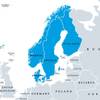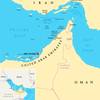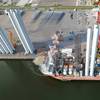The European Union's executive body proposed starting a World Trade Organisation (WTO) dispute against South Korea over alleged subsidies to its shipyards unless a deal could be reached by June 30.
At the same time, the European Commission said it would propose allowing temporary government aid for European shipyards hit by South Korean competition for the duration of the WTO case. Both proposals will be discussed by EU industry ministers who meet on May 14 and 15.
"Although we have not closed the door to an amicable solution with the Korean authorities, the clock is now ticking," EU Trade Commissioner Pascal Lamy said. The Commission said its own five-month probe of South Korean shipbuilding had established that substantial subsidies had been granted to South Korean shipyards which it alleged contravened the WTO's 1994 Subsidies Agreement.
"On this basis, the Commission will recommend that the matter be taken before the WTO through the initiation of a dispute settlement procedure by 30 June unless an amicable solution can be reached in the interim period," it said.
General European government aid to shipyards was banned at the end of last year. Under the "temporary support mechanism" proposed by the Commission, state aid of up to 14 percent would be allowed for building the types of ships where European shipyards had been hard hit by the alleged unfair practices by South Korea, the world's biggest shipbuilder. These are container ships and product and chemical tankers.
The scheme would remain in place for as long as the WTO case lasted.
The Commission said the new aid must not lead to distortions of competition in the EU and proposals to subsidize shipping contracts by more than six percent must be submitted to the Commission for its authorization.
The EU has repeatedly accused Seoul of paying its shipbuilders illegal subsidies that it says threaten the existence of European competitors. South Korean shipbuilders deny the charges.
Despite repeated talks on the issue, EU and South Korean officials have been unable to settle their differences.
The Commission said its investigation had revealed that South Korea had granted substantial subsidies, mainly through export schemes by the state-owned Korean Export-Import Bank and debt forgiveness and debt-to-equity swaps by financial institutions owned or controlled by the government.
The main beneficiaries were Halla Engineering and Heavy Industries (now called Samho Heavy Industries), Daedong Shipbuilding Co. and Daewoo Heavy Industries (now called Daewoo Shipbuilding Marine Engineering), it said.
Late last year, the EU set a deadline of May to get satisfaction from South Korea or threatened to start a WTO case to try to force changes in the country's shipbuilding practices. The Korea Shipbuilders' Association recently released a report by a shipping consultancy that it said showed that the European complaints were groundless.
"This report conclusively demonstrates that Korean shipbuilders owe their market position to exchange-rate factors, increased productivity, and ... non-price factors such as quality, reliability and on-time delivery," S.D. Lee, the association's director of international affairs, said. - (Reuters)
Featured videos

Inmarsat Enhances Service to Drive Digitalization

Tracking Foreign Vessels Working in the U.S. Jones Act Market

Inside the Electrified Truckable Tug
Subscribe for
Maritime Reporter E-News
Maritime Reporter E-News is the maritime industry's largest circulation and most authoritative ENews Service, delivered to your Email five times per week









